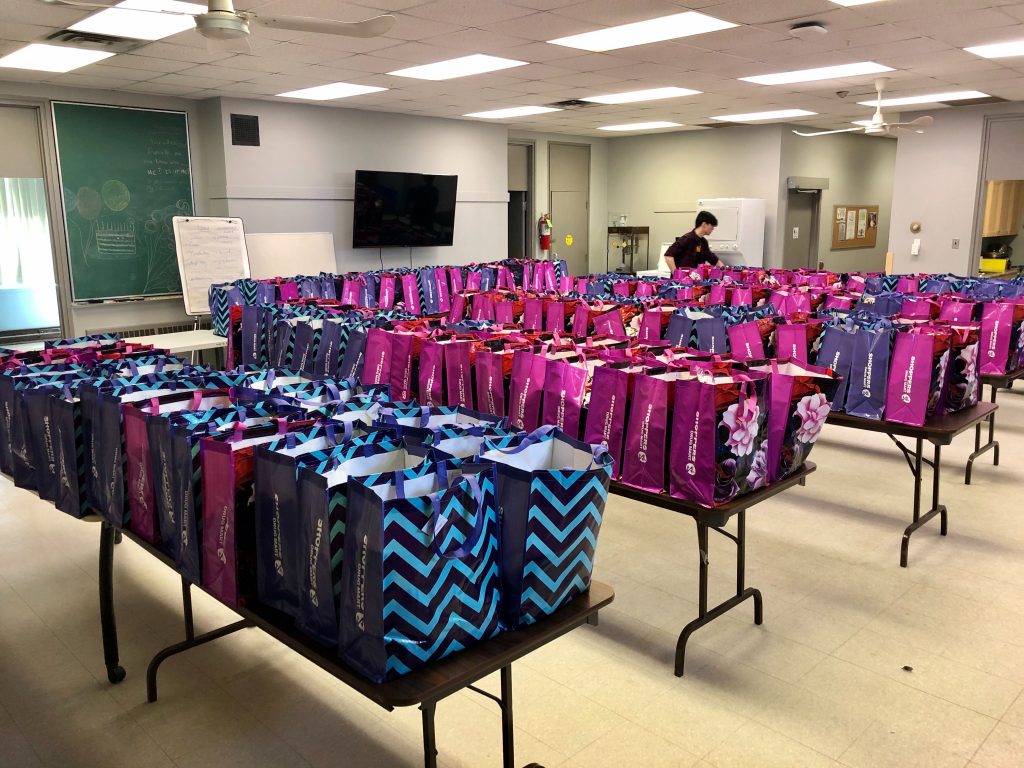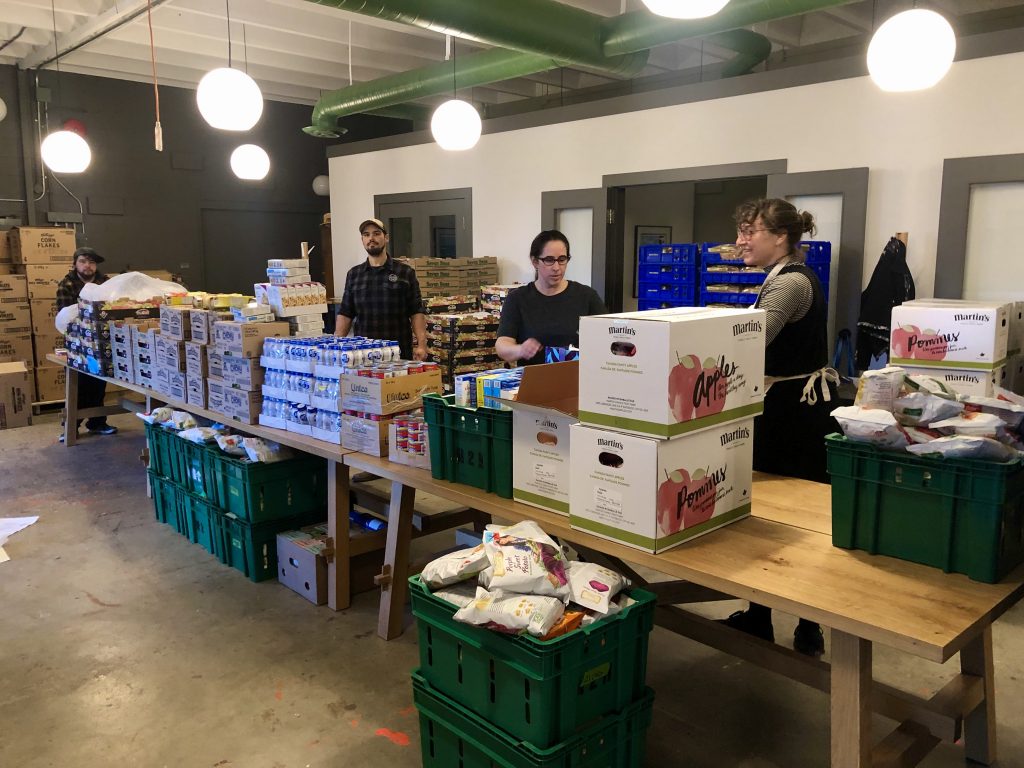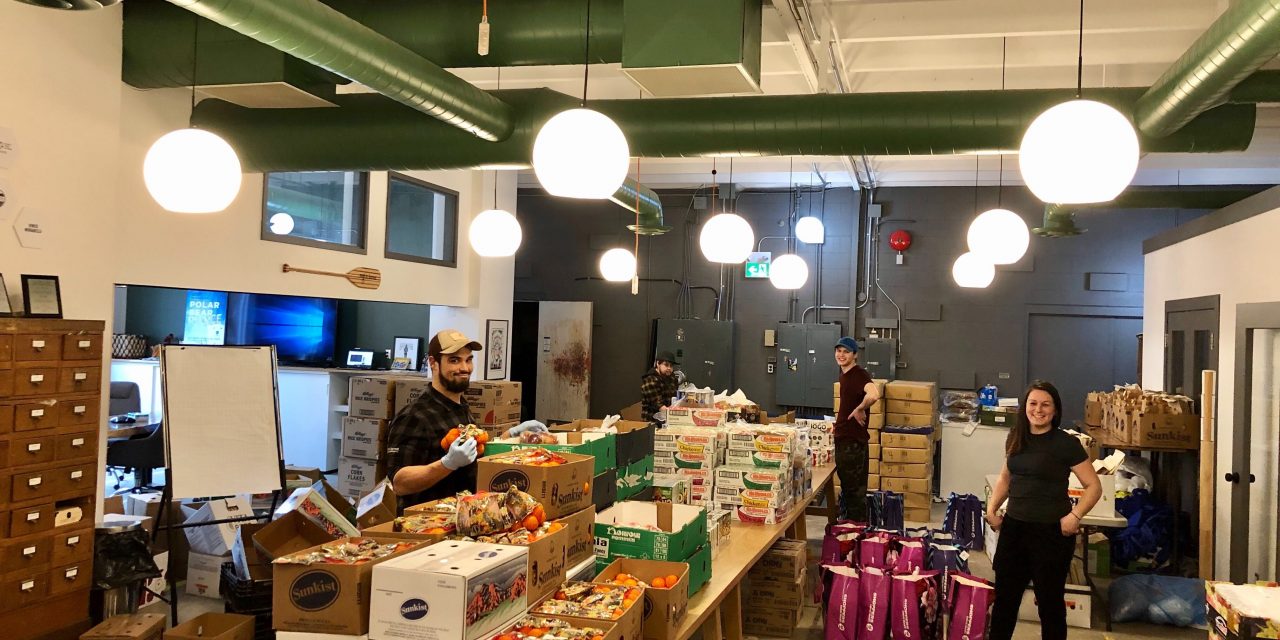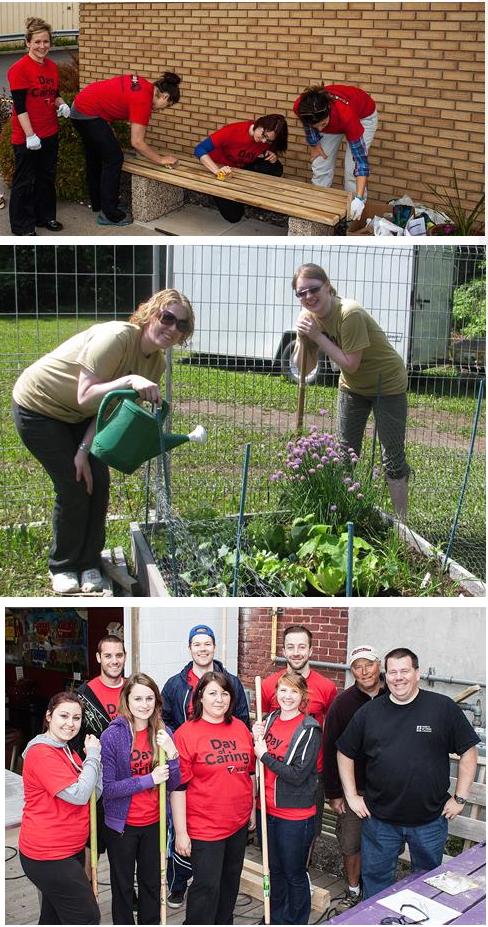Food Banks, Community Organizations, Grapple with COVID-19
By Matt Prokopchuk
A Thunder Bay urban agriculture organization says the ongoing pandemic has seen it and other grassroots organizations help provide necessary food hampers and supplies to those living in poverty, as province-wide data shows that COVID-19 is putting even greater demands on an increasingly taxed emergency food access system.
For nearly five months during the onset and subsequent months of the pandemic last year, Roots to Harvest executive director Erin Beagle says her group, along with 13 other organizations—including the Dew Drop Inn, local child welfare agencies, the city’s three school boards, Isthmus, Evergreen A United Neighbourhood, and others—partnered to distribute thousands of food hampers to families, seniors, and Elders. “COVID has had a huge impact,” she says. “You saw this really clearly in Thunder Bay, especially in the first wave, how food banks closed down for the most part and then centralized, and that made it really hard for people to get food.” She adds, “On the other side of that, a lot of agencies, aside from Roots to Harvest […] really picked up getting food to the people they serve.”

The food banks’ closures came in the spring, when the first wave of the coronavirus was sweeping through the Western world. In Thunder Bay, Volker Kromm, the executive director of the Regional Food Distribution Association (RFDA), says many food banks closed due to concerns they couldn’t adequately protect their volunteers and staff, especially during the initial weeks of the pandemic. The local solution was a centralized pickup point at the CLE grounds, on which Kromm says the Salvation Army “took the lead.” This ran every two weeks for about three months, until some food banks began reopening towards the end of summer, and other initiatives, like deliveries, were in place.
Those initial months gave food security advocates the time and ability to collect data on how the pandemic affected emergency food access. Feed Ontario (formerly the Ontario Association of Food Banks) produced a report in November showing that Ontario’s food banks saw a 26% increase in first-time visitors between March and June, while data collected by Roots to Harvest found that over 50% of people they surveyed said that reliable access to food due to financial constraints worsened since the onset of COVID, and for 20%, it was a brand-new reality.
The pandemic has underscored the need for better social supports across the board, so that people have more money to feed themselves, Beagle says. “Make sure there’s income supports and life is more affordable for Canadians, meaning there’s [affordable] child care or there’s pharmacare or affordable housing,” she says. “When we don’t have those things, people are spending their money in other places and they become food insecure.” The Feed Ontario report, as well as a separate report last year from Community Food Centres Canada, made similar recommendations.

In Thunder Bay, Kromm says the RFDA and local food banks are adapting to the new normal, including the use of a second warehouse space at the Thunder Bay International Airport to help with the creation of hampers for delivery to food banks, improvements to the RFDA’s existing warehouse space, and changes to the operations at individual food banks. “Whatever it takes to be able to do it safely,” he says.
And Beagle says, while she doesn’t feel it’s Roots To Harvest’s job to be an emergency food provider post-pandemic—“this is not our role or our work”—they have signed on with Community Food Centres Canada to be one of its designated centres. That means running community kitchens, special food markets, and being a grassroots space for access to high quality food. As well, she says, once they are able to do, so, Roots to Harvest will continue its usual programming and its work to find better ways to tackle food insecurity, as, she says, current methods aren’t enough.
“We’ve seen that year after year after year; the numbers go up, there are more people living in poverty and being food insecure,” she says. “It’s not working.”














